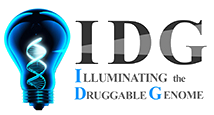Drug results: 4
| dihydrocodeine |
|
|
| acetyldihydrocodeine |
|
|
| caffeine | A methylxanthine naturally occurring in some beverages and also used as a pharmacological agent. Caffeine's most notable pharmacological effect is as a central nervous system stimulant, increasing alertness and producing agitation. It also relaxes SMOOTH MUSCLE, stimulates CARDIAC MUSCLE, stimulates DIURESIS, and appears to be useful in the treatment of some types of headache. Several cellular actions of caffeine have been observed, but it is not entirely clear how each contributes to its pharmacological profile. Among the most important are inhibition of cyclic nucleotide PHOSPHODIESTERASES, antagonism of ADENOSINE RECEPTORS, and modulation of intracellular calcium handling. |
|
| paracetamol | Analgesic antipyretic derivative of acetanilide. It has weak anti-inflammatory properties and is used as a common analgesic, but may cause liver, blood cell, and kidney damage. |
|



